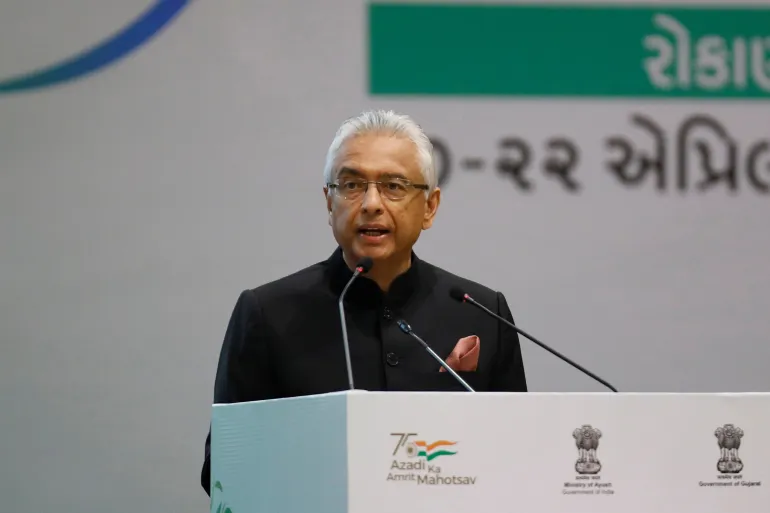By : Lloyd Mahachi
Mauritius, considered one of Africa’s best-managed democracies, has taken a surprising move by blocking social media platforms until after the general election on November 10.
The government claims this decision is necessary to preserve national security and integrity following the publication of certain audio clips, including 20 leaked conversations involving politicians, police, lawyers, journalists, and members of civil society. However, the opposition sees this as a ploy by Prime Minister Pravind Kumar Jugnauth’s ruling party to cling to power.
The leaked conversations have sparked a wiretapping scandal, and Jugnauth’s office has established a crisis committee to contain the risks. Critics argue that the ban on social media is an attempt to restrict freedom of expression and assembly, which are essential components of a democratic society. This move has raised concerns about the democratic process in Mauritius, particularly in light of the country’s history of credible elections. The opposition has questioned the timing of the ban, suggesting it is a desperate attempt to suppress dissenting voices.
Mauritius has experienced declines in democratic performance, particularly in the areas of credible elections and effective parliament. The 2019 elections were marred by controversy, and analysts have characterized them as a turning point for the country. Despite these challenges, Mauritians’ support for democracy remains strong, and the upcoming elections present an opportunity for renewal. The country’s democratic foundation, built over decades, is being tested, and the outcome of these elections will determine the course of its democratic future.
The opposition, led by Navin Ramgoolam, has expressed concerns about the government’s motives. Ramgoolam stated, “The outgoing government knows quite well that it’s heading towards a defeat. As such, it is using all means to stay in power.” Civil society groups have also warned that this move will harm the economy, disrupt businesses, and restrict access to essential information and services. The Internet Governance Forum and the Internet Society have jointly expressed their concerns, emphasizing the importance of digital platforms in maintaining democracy.
As the elections approach, the international community is watching closely to see how this situation unfolds. In a region where democratic values are increasingly under threat, Mauritius’ actions have significant implications. The country’s democratic institutions, including the electoral commission and judiciary, will be scrutinized to ensure the integrity of the electoral process. The outcome of these elections will have far-reaching consequences for Mauritius’ democratic future and its reputation as a beacon of democracy in Africa.
The government’s decision to block social media has sparked widespread debate, with many citizens taking to alternative platforms to express their discontent. The ban has also raised concerns about the potential for violence or unrest on election day. As tensions rise, it remains to be seen how the situation will unfold. One thing is certain, however: the 2024 Mauritian general elections will be a defining moment in the country’s democratic history.
Editor : Josephine Mahachi

